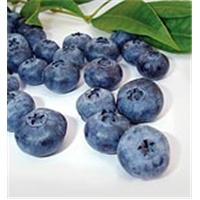
Many of us can’t even bring ourselves to say the word ‘colon’ in public, yet a healthy digestive tract could be the key to long life and, far from being a dirty word, if you are going to look after just one bit of your body, make sure its your colon, because that takes care of everything else.
Dao Earl, from the UK colonic and fasting retreat Sura Detox, explains: “The colon was designed to generate nutrients from food, and propel the wastes out of the body, but our modern lifestyle stresses, combined with increased toxins in food, are putting too much strain on our digestive system. As a result, the tract becomes clogged, which both inhibits digestion and results in these poisons being reabsorbed into your bloodstream. So, whether you are looking to get more wastes out (weight loss, allergies, cholesterol), or get more nutrition in (osteoporosis, deficiencies) clearing your bowel is the best place to start.”
“Why is it that despite the high intentions to eat more healthily, and find the perfect, stress-free work/life balance, more and more of us are struggling with the pressures of everyday life, under which we reach for food to relax us, alcohol to enjoy ourselves, and caffeine to wake us up? We are working hard and fast against our wants and needs. For many the time has come to step off the merry-go-round for a moment, get some perspective, and start asking some pretty loft questions about all this.”
Sura Detox offers week long retreats once a month at its beautiful retreat in the heart of rural Devon. Each retreat takes the form of a juice or water diet and twice daily colonics.
Fasting gives your body the chance to naturally purge itself of its toxins, as it redirects the energy normally required for digestion, and focuses upon purifying itself. The general program and frequent colonics ensure the thorough elimination of waste, so that yo! ur body has the utmost opportunity for restoration.
All Sura Detox programmes are supported by powerful nutritional talks to encourage visitors to adopt healthier eating patterns, as well as complementary therapies such as yoga, massage and homeopathy.
Results from Sura Detox speak for themselves. Many visitors find that lifetime ailments such as arthritis and asthma are substantially improved, and the effects of the retreat itself, actually result in a feeling of mental cleansing too.
Sura Detox retreats are held once a month in Devon. For more information on the retreats, visit www.suradetox.com or call 08456 343 895.
–
.





